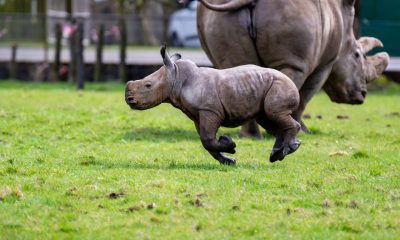Study warns that people who had COVID-19 could still be infectious after two months
“In some settings, such as people returning to care homes after illness, people continuing to be infectious after ten days could pose a serious public health risk."
Stories and infographics by ‘Talker Research’ are available to download & ready to use. Stories and videos by ‘Talker News’ are managed by SWNS. To license content for editorial or commercial use and to see the full scope of SWNS content, please email [email protected] or submit an inquiry via our contact form.

 Parenting6 days ago
Parenting6 days agoSingle mom details struggles of feeding her 12 kids

 Lifestyle5 days ago
Lifestyle5 days agoWoman regrets her tattoo nightmare: ‘It’s horrendous’

 Good News2 days ago
Good News2 days agoDisabled student takes first steps in 10 years on graduation stage

 Broadcast1 week ago
Broadcast1 week agoOver 40% of Americans have no clue what a 401k is

 Broadcast1 week ago
Broadcast1 week agoHow hard is it for Americans to live sustainably?

 Health2 days ago
Health2 days agoNew study reveals ‘old age’ begins later than it used to

 Money1 week ago
Money1 week agoOver 40% of Americans have no clue what a 401k is

 Environment1 week ago
Environment1 week agoHow hard is it for Americans to live sustainably?
























